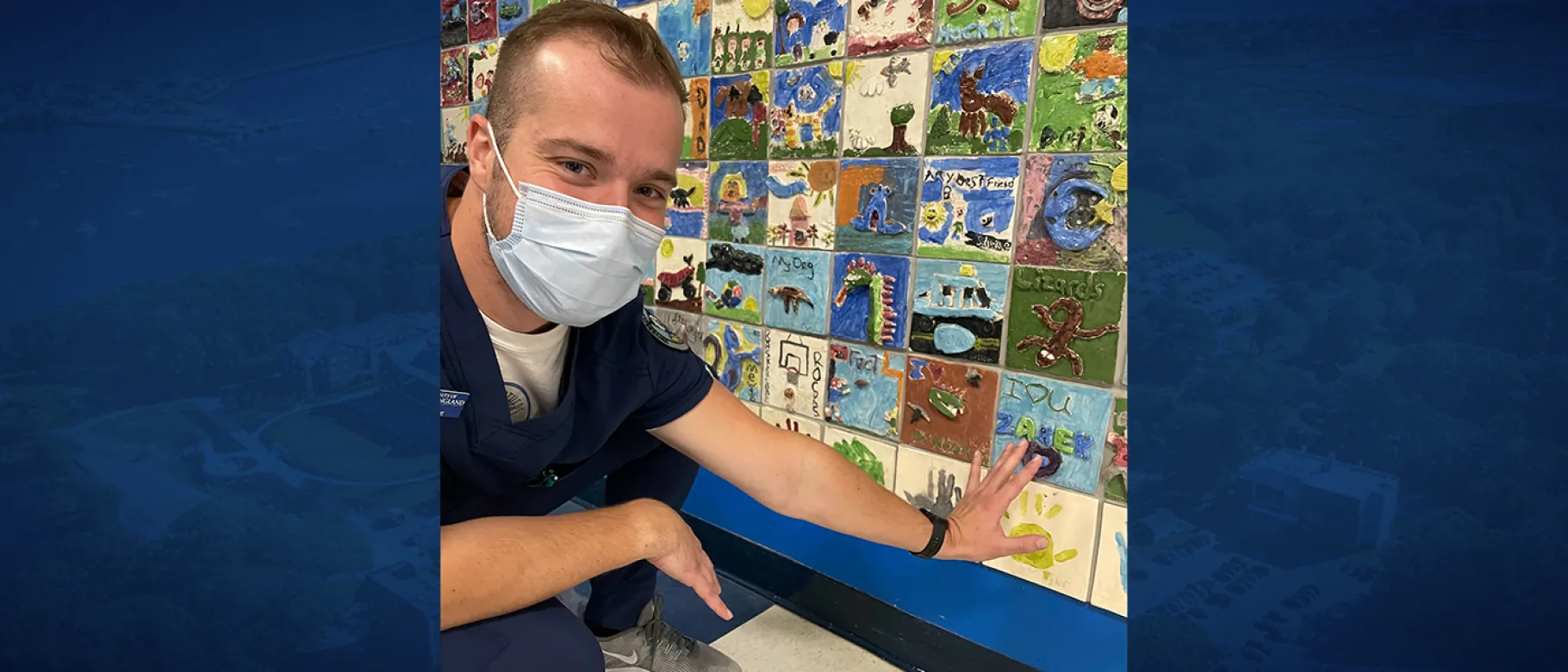Nursing student returns home to volunteer at pediatric COVID-19 vaccination clinics

Parents of young children everywhere rejoiced late last month, as the U.S. Food and Drug Administration approved the Pfizer-BioNTech coronavirus vaccine for kids ages 5 to 11 years old. But the demand for the vaccine — coupled with the additional need for seasonal flu shots and health care workforce shortages — has strained the rollout of much-needed pediatric COVID-19 immunizations.
So, when Northern Light Homecare and Hospice reached out to the University of New England seeking help with its in-school vaccine clinics, the School of Nursing and Population Health was quick to assist, offering 32 student volunteers from its current Maternal/Child Nursing courses to vaccinate youngsters at over seven schools across southern Maine.
“This was an incredible opportunity for students to give back to the community and make a huge impact on the communities they serve,” said Donna Hyde, M.S.N./Ed.D., RN, MGSF, assistant clinical professor of nursing at UNE. “I think this felt like a real calling for them.”
For Tyler Wright (A.B.S.N, ’22), the experience was deeply personal. He grew up attending two of the schools where the clinics were held — Waterboro Elementary School and Massabesic Middle School — and was recently able to return to both as a volunteer vaccinator.
“We [UNE students] were immediately greeted when we arrived at the middle school, and I even saw some of my former teachers,” Wright said. “I felt very grateful to be back in my hometown and say ‘thank you’ to those who were such a big part of my education growing up.”
The experience was also valuable from an educational standpoint, Hyde said, in that the students were granted a hands-on opportunity to practice in an interprofessional environment, a key fixture of UNE's health professions curriculum.
“Working with other nurses and entities in the public health realm is very different than in an acute care setting,” she said. “Being out in the community, seeing a diversity of clients and socioeconomic statuses, and getting a real feel for how to work with different populations is incredibly beneficial.”
The clinics also allowed students to put their course work in the Maternal/Child Nursing course into action — from the fundamental understanding of child development to the act of reassuring anxious kids.
“Most children are apprehensive of the ‘shot’ associated with vaccinations, and so our students had to think of the developmental levels of the children they were working with, talk to them, and be mindful of their fears,” Hyde remarked. “It was a wonderful opportunity for students to practice their communication skills and offer education and assurance to the children.”
Wright said that, while there were some tears from the younger children, most took their shots like champions — and they all had their own reasons for getting vaccinated.
“The students were so brave,” the accelerated nursing student said. “One student actually said to me, ‘I’m doing this so I can see my grandparents again.’”
About 100 students between the two schools were vaccinated the day Wright volunteered, he said.
“I’m overwhelmingly proud of my community and the number of people who trusted in me to provide their vaccines,” Wright remarked. “It was an incredibly moving day, and I’d volunteer my time in this way again in a heartbeat.”